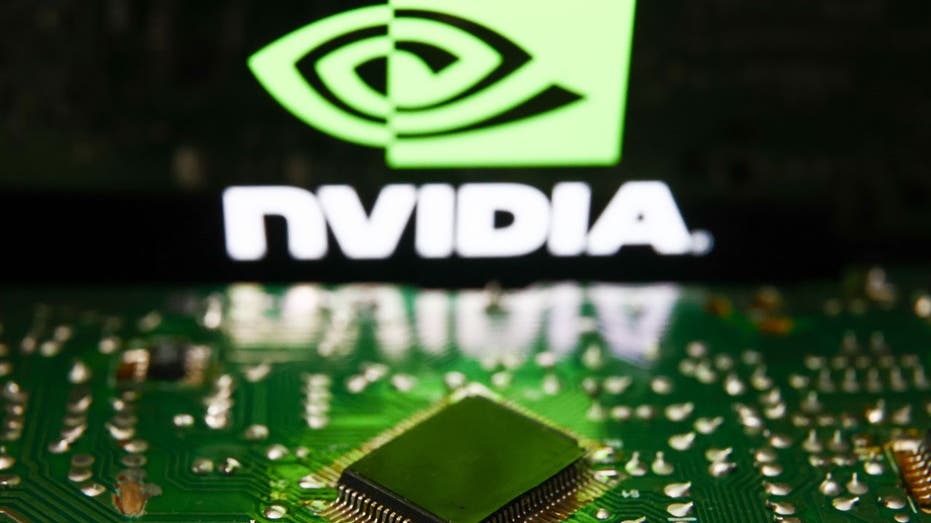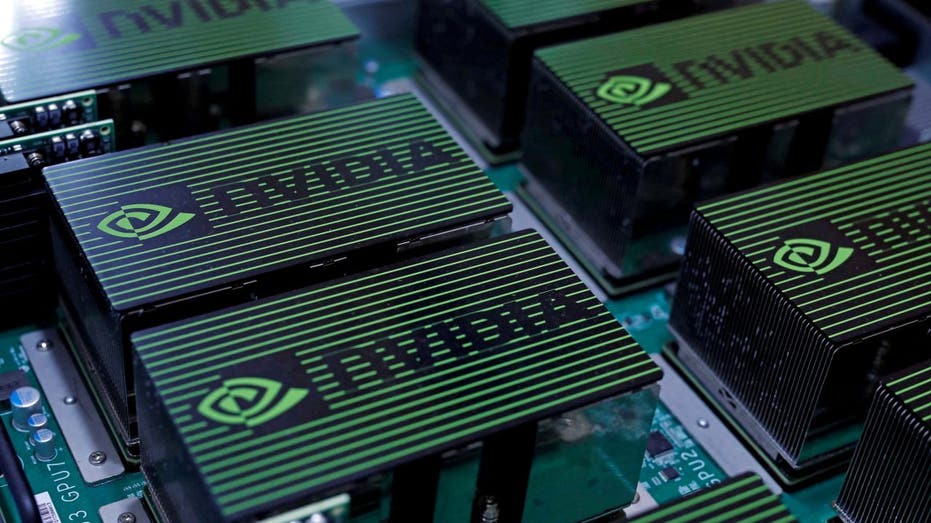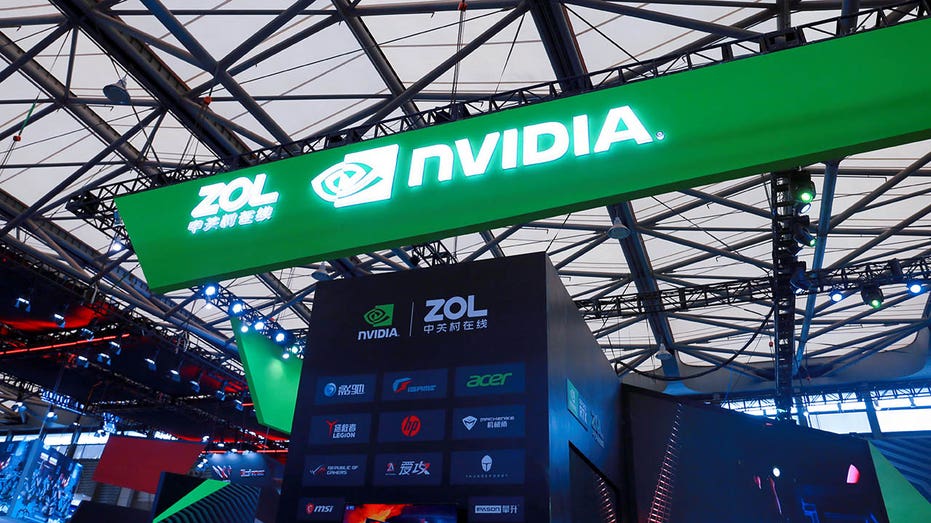Nvidia says US sped up export curbs on AI chips
Nvidia said the US sped up its implementation timeline for broader export controls on AI chips to China
Nvidia, VMware team up to unlock generative AI for businesses
VMware CEO Raghu Raghuram discusses the future of AI and his partnership with Nvidia on 'The Claman Countdown.'
Nvidia said in a new regulatory filing dated Tuesday that the U.S. government’s new export controls on shipments of advanced artificial intelligence (AI) chips to China took effect Monday after regulators sped up the timeline.
The Biden administration’s latest export controls on China's access to AI chips were announced Oct. 17, with an implementation date that was initially slated for 30 days later. The export curbs aim to prevent adversarial countries like China, Iran and Russia from receiving advanced AI chips like those made by Nvidia and other leading chipmakers.
Nvidia CFO Colette Kress wrote in the Securities and Exchange Commission (SEC) filing that the U.S. government informed Nvidia on Monday that the interim final rule "is effective immediately." The rule impacts shipments of several Nvidia products including its A100, A800, H100, H800 and L40S chips. The advanced chips can be used to power generative AI tools and train large language models.
"Given the strength of demand for the Company’s products worldwide, the Company does not anticipate that the accelerated timing of the licensing requirements will have a near-term meaningful impact on its financial results," Kress wrote on Nvidia’s behalf.
CHINA PRIORITIZING AI WITH GOAL OF ‘INTELLIGENTIZIED WARFARE,’ PENTAGON WARNS

Nvidia said in a filing that the U.S. government sped up its implementation timeline for export controls on AI chips to China. (Jakub Porzycki/NurPhoto via Getty Images / Getty Images)
The company’s filing didn’t indicate the reasoning behind the expedited implementation of the chip curbs. Nvidia declined to provide an additional comment in response to a request from FOX Business.
The Commerce Dept. didn’t immediately respond to a request for comment.
| Ticker | Security | Last | Change | Change % |
|---|---|---|---|---|
| NVDA | NVIDIA CORP. | 864.02 | -13.55 | -1.54% |
WHAT IS ARTIFICIAL INTELLIGENCE (AI)?

Nvidia designed its A800 and H800 products to comply with export controls and allow access to the Chinese market, but those chips are subject to the new rules. (REUTERS/Tyrone Siu / Reuters Photos)
Previously, Nvidia designed its A800 and H800 as modified versions of its domestic AI chips to allow the company to continue selling advanced but less powerful chips to the Chinese market while complying with the prior export control rules.
Export controls don’t necessarily block all sales of covered products to companies or countries covered by the restrictions. They do, however, require the company to get a permit to sell covered products to specified overseas customers due to concerns about the advanced technology falling into the wrong hands.
BIDEN ADMINISTRATION RESTRICTING NVIDIA’S SALES OF AI CHIPS TO SOME COUNTRIES IN THE MIDDLE EAST

Nvidia previously warned that limited access to the Chinese market could have a negative impact on the company's competitiveness over the long-term. (CFOTO/Future Publishing via Getty Images / Getty Images)
Nvidia said in a filing from this summer when the U.S. applied export controls to unspecified customers in the Middle East that it didn’t anticipate additional export restrictions having an immediate financial impact.
However, at the time the company warned that "over the long-term, our results and competitive position may be harmed, and we may be effectively excluded from all or part of the China market if there are further changes in the [U.S. government’s] export controls, if customers in China do not want to purchase our alternative product offerings, if customers purchase product from competitors, if customers develop their own internal solution, if the [U.S. government] does not grant licenses in a timely manner or denies licenses to significant customers, or if we incur significant transition costs."
GET FOX BUSINESS ON THE GO BY CLICKING HERE
Nvidia’s stock price rose about 1.5% during Tuesday’s trading. The AI powerhouse has seen share prices rise over 204% year to date.
Reuters contributed to this report.
